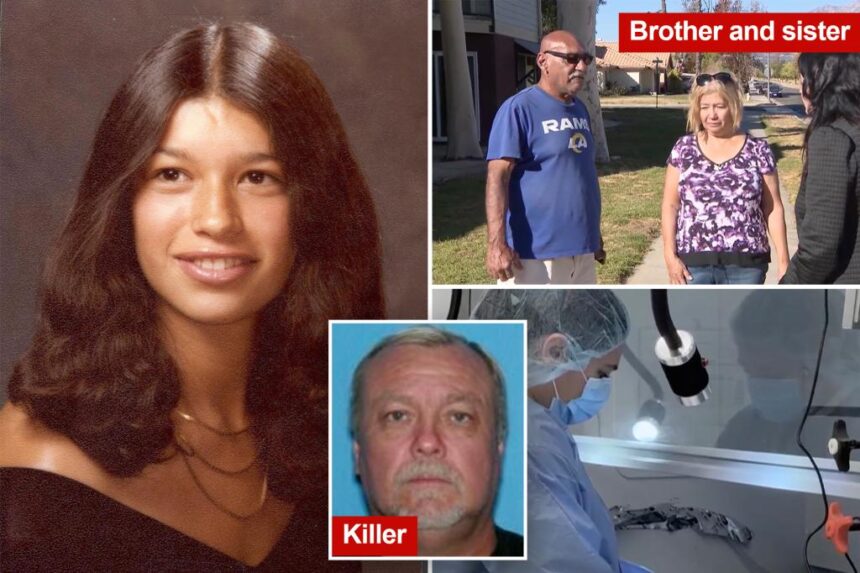An individual who was previously cleared through a polygraph test for the rape and murder of a teenage girl in 1979 has now been connected to the victim through new DNA evidence, authorities disclosed.
Esther Gonzalez, a 17-year-old, was walking from her home in Beaumont, Calif., to her sister’s residence in Banning, which is about 85 miles east of Los Angeles, on February 9, 1979, when she was assaulted.
The following day, Esther’s body was discovered discarded in a snowpack off Highway 243. Authorities determined that she had been sexually assaulted and then fatally beaten, according to the Riverside County District Attorney’s Office.
An unidentified man, described by deputies at the time as “argumentative,” discovered the body and alerted the Riverside County Sheriff’s Station, stating that he was unsure if it was a male or female.
This man, later identified as Lewis Randolph “Randy” Williamson, was requested by sheriff’s investigators to undergo a polygraph test, which he agreed to and successfully passed, absolving him of any involvement.
For more than four decades, the case remained unsolved with no additional leads or witnesses coming forward.
However, the Riverside County District Attorney’s Office recently announced in a press release that the case had been resolved using forensic genealogy, finally closing the over 45-year-old cold case.
The cold case homicide team of the Riverside County Sheriff’s Department reopened the investigation in 2023.
By utilizing the semen sample collected from Gonzalez’s body 44 years earlier and analyzing it through genetic genealogy databases, investigators realized that Williamson had never been exonerated through DNA testing because the technology was not available when he passed the polygraph test in 1979.
Although Williamson passed away in Florida in 2014, a blood sample was taken during his autopsy, allowing the team to conduct DNA testing for a match.
The sample was sent to the California Department of Justice with the help of the Broward County Sheriff’s Office.
The cold case team subsequently confirmed that Williamson’s DNA matched the DNA retrieved from Gonzalez’s body.
The lead investigator for the Riverside County Sheriff’s Office, Jason Corey, informed CNN that the case had been with Riverside County’s cold case unit since its inception about five years ago, and multiple investigators have diligently worked towards solving it.
“I can’t imagine what it’s like for them,” Corey expressed to the outlet. “That entire family has endured immense devastation over the years. This has been a constant struggle. I don’t believe this is something that became easier for them over time.”
“I’m not sure if you can say you’re relieved that it’s over, because it’s still, it’s still a dreadful tragedy, but I hope it can offer them some closure,” he added.
Corey highlighted that forensic genealogy “will be an invaluable investigative tool going forward” to assist investigators in generating leads for unsolved cases.
“It will not only help identify victims, but it will also guide investigators towards potential suspects, aiding in bringing those responsible to justice,” Corey conveyed to the outlet.
The Riverside County Regional Cold Case Homicide Team encourages anyone who had knowledge of Williamson or may possess information about the case or other potential victims to reach out to them at 951-955-277 or coldcaseunit@rivcoda.gov.





